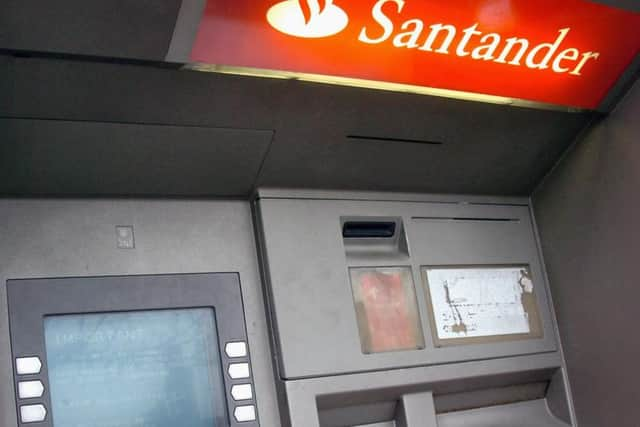David Behrens: Banks still have a responsibility to serve these Yorkshire communities


A century and a half on, the area has no head office and hardly any branches, either.
The announcement of yet another closure by Barclays, this time in the market town of Hawes, means that only two centres in Richmondshire’s 500 square miles will have any banks at all. The picture is hardly any better in neighbouring Craven.
Advertisement
Hide AdAdvertisement
Hide Ad

We have all seen the retreat of banks from our own high streets, their premises abandoned to pubs and nightclubs and their customers to the internet. Just the other week, Santander, whose boss earned £6.4m last year, announced it was closing another 10 branches in Yorkshire.
The repercussions are everywhere, but it is in the rural parts of our county that the effect is most precipitous.
It is no exaggeration to suggest that if the closures continue at their present rate, North Yorkshire, England’s largest county, will have no banks at all outside its biggest centres: York, Harrogate, Scarborough and one or two others.
Advertisement
Hide AdAdvertisement
Hide AdThere are more than 3,000 square miles between them, which is a lot of distance to cover when tourists pitch up for the night in a village deep within the Dales or the North York Moors and ask where the nearest bank is. The answer may well be in Lancashire.
Tourism, along with agriculture, is the backbone of the economy in these centres, and those high streets that survive do so with gift shops and food emporia whose currency is still cash. But it won’t be when there is no bank from which to draw a float, or deposit the takings. Just try doing either of those on the internet.
The abrogation of responsibility for these communities sits squarely at the feet of the banks and the regulatory bodies that are supposed to rein them in. As the backbench Conservative MP Luke Graham pointed out, they spent years endangering customers and taking money from taxpayers; now they are arbitrarily abandoning some of the most vulnerable communities they claim to support.
It is a rather different picture to the unbridled, devolved economic optimism propagated by some of the great and the good at Tuesday’s Great Northern Conference in Leeds, isn’t it?
Advertisement
Hide AdAdvertisement
Hide AdShortsightedness and, of course, greed, is at the root of the problem. The banks have seen the internet as an opportunity only to cut costs, not to adapt. They have been content to take out branches by the hundred and replace them with nothing.
They could have invented a different type of service. An automated kiosk could have dispensed change and offered a night safe while at the same time keeping alive the brand name and generating new business.
If the arcades on Scarborough seafront can manage to lay on change machines, surely Barclays Bank can come up with one.
There are, for this purpose, two types of banks: those we bailed out at the height of the financial crisis they created in 2008, and those we did not.
Advertisement
Hide AdAdvertisement
Hide AdChief among the former is the Royal Bank of Scotland, whose chairman, Sir Howard Davies, has admitted it is unlikely the Government will get back all of the £45.5bn it handed them. “The bank was rescued to save the UK financial system from collapse, not as a financial investment,” he insisted.
I’d like to see someone try that argument in reverse. “I can’t repay the loan on my car – it was only to rescue the transport system in my household caused by my wife not letting me drive hers.”
RBS is among the worst offenders in closing branches and it’s about time the Government got a return on its non-investment, if not in cash then in public goods – perhaps, as Mr Graham suggests, by requiring them to provide a minimum level of service in areas bereft of alternatives.
Failing that, customers may have to fall back on their wits. Hawes already has a Post Office run by the community. In the West Country, they are experimenting with a community savings bank answerable to its account holders, just as the Richmond and Swaledale once was.
Reconstituted in similar fashion, that name could make a comeback. In a devolved Yorkshire, it could even start printing banknotes again.